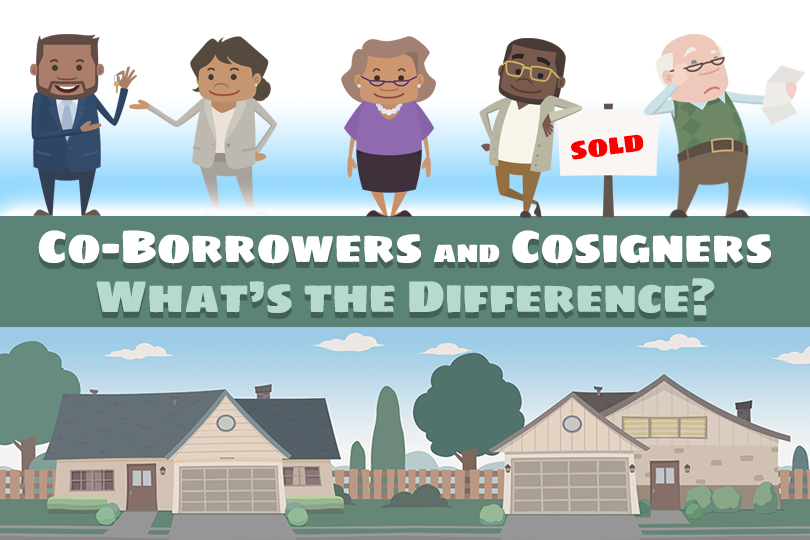Difference Between Co-Borrower and Cosigner for FHA Loans

Having a co-borrower or cosigner may improve the FHA loan applicant's chances of getting approved for the mortgage. Using a them is also a way for a borrower with established credit to help a less established co-borrower become a homeowner under the proper circumstances.
But what's the difference between a cosigner and a co-borrower? Do they have the same rights and responsibilities?
In the eyes of the FHA and your lender, these are two separate things. Cosigners don't have the same benefits as co-borrowers, though they may share the same responsibilities in many cases.
The FHA official site says, "Co-borrowers take title to the property and are obligated on the mortgage note and must also sign the security instrument. The co-borrower's income, assets, liabilities, and credit history are considered in determining creditworthiness."
That isn't the same as the FHA requirements for a cosigner, who does not have interest in the property purchased with an FHA insured mortgage. Even so, the cosigner does have responsibility on the loan.
The FHA states, "Cosigners do not hold ownership interest in a property, but are liable for repaying the obligation and must sign all documents with the exception of the security instruments. The cosigners income, assets, liabilities, and credit history are considered in determining creditworthiness for the mortgage and the cosigner must complete and sign the loan application."
Co-borrowers or cosigners cannot have financial interest in the property--meaning they can't own the property or borrow with the owner. The same rule applies to the builder, real estate agent, any "interested parties" that could profit from the sale of the home.
That said, the FHA does provide an exception to this rule, which states;
"Exceptions may be granted if the seller and co-borrower/cosigner is related to the owner by blood, marriage or law."
------------------------------
RELATED VIDEOS:
When Do You Need a Cosigner?
Understanding Your Loan Term
Monthly Payments Establish Good Credit

Do you know what's on your credit report?
Learn what your score means.







